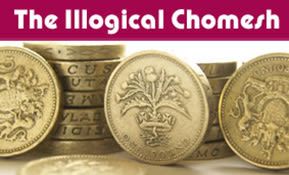
Charity or Debt Payback?
A philanthropist with financial difficulties asks Rabbi Arush if it is fair of him to donate money to charity, when on the other hand he owes people money…

The Garden of Bliss, Part 26
The upright needy
Donating charity helps rectify flaws in personal holiness. Giving charity enhances personal holiness. This rectification is made possible by giving to the upright needy who themselves do good and holy deeds. One must be careful to donate money to the heads of yeshiva institutions that will use the money to help support Torah scholars and spread Torah learning. One must also know that he will surely encounter obstacles when he attempts to make donations precisely to these Torah institutions and to the spreading of Torah and emuna in the world, for holy endeavors never come easy. Therefore, one must pray for the privilege of giving charity to truly worthy and decent individuals.
Is a person in debt obligated to give charity?
 A philanthropist who had fallen into debt once asked me: “Is it fair of me to donate chomesh to charity, when on the other hand I owe people money?”
A philanthropist who had fallen into debt once asked me: “Is it fair of me to donate chomesh to charity, when on the other hand I owe people money?”I replied with a question: “Do you live in absolute deprivation, giving everything you have to pay back your debts? Is it true that you don’t buy anything for yourself or your family beyond your barest necessities? All your money, all of it, is given directly to pay back your debts?”
He admitted that he was still living as he had lived before, buying whatever his wife and children asked for, eating well, dressing in fashion, and driving a new car…
“If so,” I replied, “Give to charity too! If you continue to fulfill your own material desires as before, then why should you act differently in regard to charity? If you continue to spend money on things other than your very basic necessities, why is your “responsible” behavior limited only to the charity money?”
If, truthfully, you tell yourself that you have no right to buy a new suit or eat in a restaurant when you owe others money, then you can act in the same manner regarding your giving to charity. Don’t place greater limitations on charity thatn you would for personal indulgence.
Lack of wealth and lack of compassion
A person may be prevented from becoming wealthy because he does not take pity upon his fellow mankind. There are times when a person will become wealthy, and assume that his money is truly his, forgetting that everything is a gift from Hashem. When Hashem gives a person wealth, He wants to see what that person will choose to do with this gift – will he give generously to others from the abundance that he himself received, or will he harden his heart and believe that his wealth is a consequence only of his own efforts and accomplishments?
If one chooses to give to others, to share his wealth and give to charity foundations, then he is being faithful to Hashem and will surely enjoy continued wealth. If on the other hand he chooses to be cruel instead of showing compassion and generosity, he obviously erroneously believes all this wealth is of his own doing. The latter surely has not met the test Hashem has given him and the wealth he has received will be taken from him to be given to one more deserving.
The Torah in Exodus Chapter 22 says, “When you lend money to My people.” The Ohr HaChayim asks why the Torah uses the word “when”, suggesting only the possibility and not the certainty of giving money to others. He comments that there are times when we see a certain individual seems to be a great deal wealthier than necessary. This causes us to wonder why he has been given so much wealth, why he has received so much more than what our patriarch Yaakov asked for “… bread to eat and a garment to wear” (Genesis, Chapter 22).
We find an explanation in the abovementioned verse. Surely no one is given wealth just to squander it. If a person is blessed with assets that go beyond his needs, this is money given to him in trust, to be used for charitable purposes.
“When you lend money to My people, to the poor person [who is] with you, you shall not behave toward him as a lender.” (Exodus, Chapter 22). And as we find in Chapter 5 of Ecclesiastes: “There is a grievous evil that I saw under the sun; riches kept by their owner for his harm. And those riches are lost through an evil design, and he will beget a son who will have nothing in his hand.” The Almight tests the wealthy, to see if they will open their hands to the less fortunate. If so, they are rewarded in the world to come, for as it is written, ‘and your righteousness shall go before you; the glory of the L-rd shall gather you in’ (Isaiah, 58:8). The poor as well are being tested, if they will spurn this earthly world: ‘For You deliver a poor people (Psalms 18)’ [Midrash Tanchuma 8].”
Even a person with a moderate income is being tested. Hashem wants to see if those who earn only a modest income will assist others, even when they themselves are limited in their funds. If they meet the test and merit giving to charity, Hashem will reward them, just as it is written in Midrash Raba of Numbers 14: “Who came to meet Me? I will pay [his reward].” (Job 41). Rabbi Tanchum said: He who does not have assets and in spite of that gives to charity, Hashem says to him: ‘He preceded Me and kept my commandments, even before I gave him sustenance. Now I must pay, I must give him money.’”














Tell us what you think!
Thank you for your comment!
It will be published after approval by the Editor.